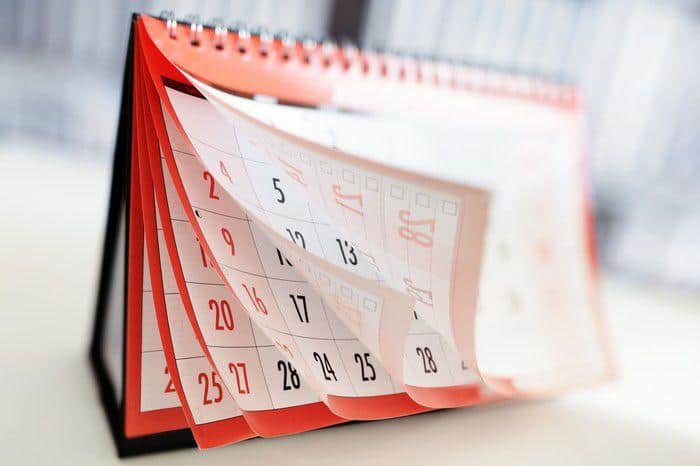
President Joe Biden’s upcoming annual White House budget proposal won’t include any student debt forgiveness, according to recent news reports.
For nearly 43 million federal borrowers, Friday’s news may be disappointing — especially given earlier moves by the Biden administration that suggested a major student loan cancellation policy could be forthcoming. In early April, Biden asked the U.S. Department of Education to review whether his executive authority gives him the ability to enact massive student loan forgiveness without congressional approval. This move gave millions of Americans a glimmer of hope, but we still await to see the results of this report.
As borrowers continue to be left in the dark, many are wondering when and if their debt will ever get canceled. Now that student loan forgiveness isn’t included in Biden’s annual budget, should borrowers move on and pay off their student loans — taking advantage of the last few months of the interest rate pause? Or should they still wait it out a bit longer in hopes they’ll see their debt canceled?
As with most things personal finance related, the answer depends on your individual situation. Below, Select outlines three scenarios with input from Meagan Landress, consultant at Student Loan Planner and Certified Student Loan Professional®, about how you should proceed with your loan repayment plan.
1. I’m pursuing PSLF
Part of being a federal student loan borrower is getting access to protections and benefits that you wouldn’t otherwise receive through a private student loan lender.
One of those protection programs is Public Service Loan Forgiveness (PSLF), which offers loan cancellation for those employed full-time by a U.S. government organization (federal, state, local or tribal) or a valid 501(c)(3) not-for-profit organization. Borrowers who work for a qualifying employer must repay their loans under an income-driven repayment (IDR) plan (it recalculates your monthly bill based on any changes in your income), and they must make 120 qualifying monthly payments.
If you’re pursuing PSLF, Landress suggests paying as little as possible on your federal loans to maximize what you can get forgiven. While federal loan payments and interest are suspended through September 2021, these $0 payments still count toward your PSLF qualifying monthly payments as if you had continued to pay off your loans during the pause. This stands as long as your loans are not in default and you continue working full-time for a qualifying employer during the payment suspension, according to the official federal student aid website.
“There is still no benefit to paying your loans until after the administrative forbearance is lifted if you’re pursuing PSLF because these months still count toward that forgiveness timeline,” Landress says.
2. I can’t afford to pay it all off right now
The federal student loan payment and interest freeze that is in effect through Sept. 30, 2021, may serve as an opportune time to continue making payments on your loans, if you can afford to do so.
If you fall into this category, you have enough money to make at least your minimum monthly student loan payment, but you can’t afford to pay off all your student loans at once.
With interest paused at 0%, your payments will be made directly toward your principal so you can chip away at it faster than if you were paying on an interest-accruing balance. Plus, once the forbearance period does end and payments/interest resume, you will have a smaller balance that is then collecting interest.
If this is your plan, Landress does add one caveat: Make sure there’s nothing else in your financial plan that needs more immediate attention. “Prioritize paying off higher interest debt and establishing emergency savings before committing money to the [paused] student loans,” she says.
3. I plan to pay off my debt ASAP
Are you in a spot financially where you could afford to pay off your loans, but you haven’t accelerated payments because you’re waiting for Biden’s potential widespread forgiveness?
Landress suggests you “stall” by putting those funds designated for your student loan debt payoff into a savings account and leaving them untouched until closer to the Sept. 30, 2021, forbearance end date. As the date approaches you can then make your lump-sum payment so you both capitalize on the no interest period while buying yourself more time for any last possibility of widespread forgiveness.
“If no forgiveness is in sight by Sept. 30, 2021, knock it out and be done with it!” Landress adds.
Bottom line
Deciding whether to pay off your federal student loans largely depends on whether you’re pursuing PSLF and, if not, ask yourself how much you want to pay on your student loans.
For those who can afford to make monthly payments toward their student loans but not enough to get rid of the debt entirely, consider taking advantage of the interest freeze to make principal-only payments while you can.
Borrowers who have the funds to pay off their student loans completely but haven’t yet because they don’t want to miss out on any forgiveness, give yourself a few more months. If, by the time we approach end of September 2021, no forgiveness has happened, finally pay off your loans for good before they start collecting interest again.
























